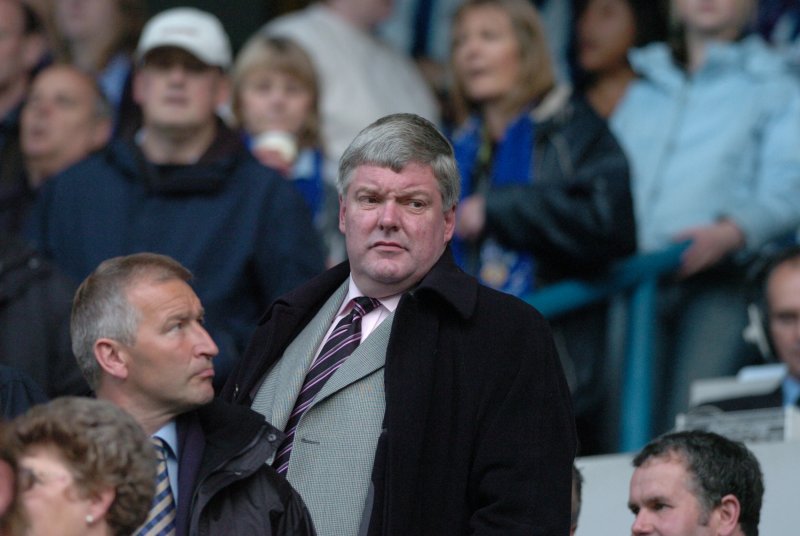ENGLISH football was rocked in 2002 by the collapse of ITV Digital, which had signed a £315million deal with the Football League to broadcast games.
That would have supplied Barnsley with about £2.5million a year for three years.
But the subscription service was a disaster, with some games reportedly attracting zero viewers while the majority of others fell well below the hoped-for levels.
The Financial Times reported that a source from ITV’s rivals Sky said: “Most of the ITV Sport content is not Champions League but Barnsley.”
Its collapse left clubs without the windfall they had expected and, in some cases, based their budget around.
Halifax Town, Bradford City, Notts County, Leicester City, Port Vale, York City and Ipswich Town all went into administration in 2002 early 2003.
Barnsley’s situation was made worse by their relegation to the third tier in the 2001/02 season, having appointed Nigel Spackman then Steve Parkin as manager while bringing in many unsuccessful players.
They were left with expected debts of around £3.5million while reportedly losing £200,000 per month and were instructed by their bank NatWest not to use their £1million overdraft.
The Reds had signed players on comparatively lucrative contracts in an attempt to return to the top flight. Now there was very little money in English football and Barnsley could not recoup losses with big-money sales of their star assets Bruce Dyer and Chris Morgan.
The chairman at the time was John Dennis, who had also been in charge when they reached the Premier League in 1997 and the play-off final in 2000.
In his book, The Oakwell Years, he says director Mick Hayselden was in advanced talks over buying the club and, in early September, Dennis met and assured members of the supporters’ society at Ardsley House that a takeover deal was imminent, only to receive a call as he left from Hayselden to say they would be withdrawing.
Days after, the club was placed in administration.
Dennis has called the process a ‘shattering experience’ and ‘truly horrible times’ and he will have ‘regrets for the rest of my life.’
He told the Chronicle: “We had some great times but, without any doubt, the relegation and administration represent the lowest of times.
“It’s a major regret of mine that I was the chairman of the club when it went into administration.
“In terms of what we could have done differently, anybody who has had experience of that sort of thing would recognise that it is not just one thing that does it. It’s a series of events.
“With the collapse of ITV Digital and the relegation, it put the club under financial pressure.
“The relegation was caused by not great decisions in terms of recruitment of players and managers.”
Matt Dunham, of accountancy firm Robson Rhodes, was appointed administrator and the high court imposed a two-month deadline to find a buyer or the club faced extinction.
Barnsley’s Supporters’ Society raised more than £100,000 through various fund-raising schemes, such as auctions and sportsman’s dinners as well as a walk from Barnsley to a match at Chesterfield which raised £25,000.
The Chronicle reported that one fan, 21-year-old Paul Stevenson, had changed his name by deed poll to ‘Save Barnsley FC’ while local band The Roundsmen re-released their song ‘It’s Just Like Watching Brazil’ to raise money.
Alan Bloore, who was involved with the society at the time, said: “We were trying to help get a sale through and constantly speaking to people who were interested.
“At that point you could get a lot of funding for building in Barnsley.
“A lot of people wanted to move the club and build hotels or houses on the land.
“Obviously we objected to that.
“I joke that we spoke to everyone from the local rag and bone man to the The Sheik of Araby.
“My mobile phone bill for 18 months came to about £3,000.
“I found it extremely stressful and had to step down at one point.”
The financial issues caused problems within the squad.
Striker Dyer said: “It was a really difficult time. It wasn’t nice for the players not knowing whether they were going to get paid.
“There were players everyone knew were on good money.
“There was friction because some people felt others weren’t pulling their weight.
“It wasn’t a nice environment.
“I took a massive paycut to stay then I was asked to take another one which I refused because I felt it was unjust after being Player of the Season.
“I got a lot of stick but sometimes it’s ‘if in doubt, blame the footballer.’”
The club’s academy was impacted, eventually losing a large number of promising players including future England centre-back Harry Maguire.
Dunham – who died in 2020 – had had ‘six successful outcomes’ with football clubs in administration, and had recently been through the same process with Bury.
He took over the running of the club, sacking manager Steve Parkin and appointing Glyn Hodges as caretaker, while introducing what Dennis called ‘ruthless cost cutting measures’, negotiating a wage deferral with the players, and discussing a sale with several interested parties.
Amid various rumours, including that Liverpool legend Kenny Dalglish would buy the club – with Peter Beardsley or John Barnes to be made manager – there was interest from local business people and consortiums.
Patrick Cryne, whose company iSoft had sponsored the shirts, had been in detailed discussions about a takeover before and after the club went into administration.
But eventually a bid was accepted by the administrator, in late November, from then Mayor of Barnsley Peter Doyle.
He drew criticism from opposition councillors for arriving at the introductory press conference as owner in the mayoral car and from some supporters for keeping Dennis as chairman, although John claims to have had little input and would leave at the end of that season.
Doyle owned the club until the summer of 2003.
It was taken over briefly by American Sean Lewis then it was bought by Cryne, who would own it for the next 14 years while – although he died in 2018 – his family still have a stake in the club now.
Dennis told the Chronicle: “I received some criticism but you have to expect that in the position I was in, when things go wrong.
“But whatever criticism I received, the club going into administration was much more important than how I was feeling.
“That’s all I was thinking about.
“Over the 20 years since that period of time, I have been privileged to have received a very warm welcome from may many fans.
“That is in recognition of the efforts of myself and my colleagues when things were going well.
“But it’s unreasonable to think that some people wouldn’t have some negative thoughts towards me.
“You have good times and bad times.
“The good times are great and the bad times in football are absolutely horrible.”


























